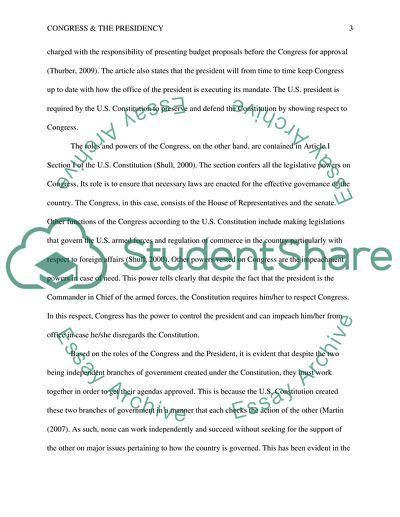Cite this document
(Congress and the Presidency Term Paper Example | Topics and Well Written Essays - 2500 words, n.d.)
Congress and the Presidency Term Paper Example | Topics and Well Written Essays - 2500 words. Retrieved from https://studentshare.org/politics/1795025-congress-the-presidency
Congress and the Presidency Term Paper Example | Topics and Well Written Essays - 2500 words. Retrieved from https://studentshare.org/politics/1795025-congress-the-presidency
(Congress and the Presidency Term Paper Example | Topics and Well Written Essays - 2500 Words)
Congress and the Presidency Term Paper Example | Topics and Well Written Essays - 2500 Words. https://studentshare.org/politics/1795025-congress-the-presidency.
Congress and the Presidency Term Paper Example | Topics and Well Written Essays - 2500 Words. https://studentshare.org/politics/1795025-congress-the-presidency.
“Congress and the Presidency Term Paper Example | Topics and Well Written Essays - 2500 Words”, n.d. https://studentshare.org/politics/1795025-congress-the-presidency.


